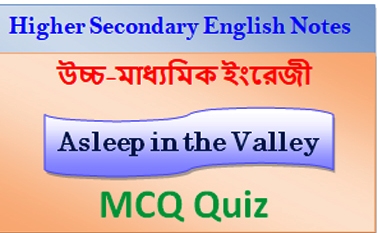Here we have shared Strong Roots Important Question Answer. APJ Abdul Kalam
Strong Roots Important Question Answer
1. “Why do not you say this to the people who come to you for help and advice?”- Who says this and to whom? What is referred to by the word ‘this’? Why do the people come to the person spoken to?
| Ans: In the extract “Strong Roots” from his autobiography, APJ Abdul Kalam says this to his father, Jainulabdeen. 📔 The word ‘this’ refers to the simple spiritual concept of Kalam’s father. According to his father, every human being is a specific element within the whole of the manifest divine Being. Therefore instead of being afraid of difficulties, sufferings and problems, we should try to understand the relevance of our sufferings. Every adversity always presents opportunities to self-examine. 📔 People come to Kalam’s father for help and advice when they face any difficulties or problems in their life. |
2. How does APJ Kalam recount his father’s daily routine?
| Ans: In his autobiography, Dr Kalam has given minute details about his austere father, Jainulabdeen who used to avoid all inessential comforts and luxuries. Kalam remembered that his father used to start his day at 4 am by reading the namaz before dawn. After the namaz, he used to walk down to their small coconut grove, about four miles from their home. He would return with about a dozen coconuts tied together thrown over his shoulder, and only then he would have his breakfast. This remained his daily routine even when he was in his late sixties. |
3. Who was Pakshi Lakshaman Sastry? How was the relation between him and Kalam’s father? What does the relationship signify?
| Ans: Pakshi Lakshaman Sastry was the highest priest of Rameswaram Temple. 📔 Pakshi Lakshaman Sastry was the close friend of Kalam’s father, Jainulabdeen. 📔 In ‘Strong Roots’ Kalam remembers that both his father, Jainulabdeen and the highest priest of Rameswaram Temple, Pakshi Lakshaman Sastry each in their traditional attire would often discuss spiritual matters. Their bond signifies that friendship is a relationship of mutual affection between people and it knows no boundaries of cast, creed or religion. It brings the message of tolerance, love and communal harmony. This relationship also signifies unity in diversity. |
4. According to Kalam’s father what was the relevance of prayer?
| Ans: Kalam’s father possessed great innate wisdom and had vast knowledge of spiritual matters. In childhood, Kalam couldn’t understand the meaning of the Arabic prayers but he was convinced that they reached God. When he was old enough to ask questions, he asked his father about the relevance of prayers. In reply his father told him that there was nothing mysterious about prayers. Rather prayer made possible a communion of the spirit between people. According to Kalam’s father when one prays his soul transcends his body and becomes part of the universe, which knows no division of wealth, age, caste, or creed. |
Strong Roots Important Question Answer
5. “When troubles come try to understand the relevance of your sufferings. Adversity always presents opportunities for introspection.”—Who said this and to whom? Explain the statement.
| Ans: Kalam’s father, Jainulabdeen said this to his son. 📔 Kalam’s father possessed a great innate wisdom and could explain spiritual matters in a simple way. He once told his son that every human being is a part of the universal divine being, regardless of place, time and his true condition. So when grief, suffering or any adversity comes, man should not be afraid of them. Instead everyone should try to understand the relevance of sufferings. There is some importance hidden in adversity. Adversity gives people a real idea of their situation and an opportunity to self-examine. |
6. “His answer filled me with strange energy and enthusiasm.” Whose answer had such an impact? Who was thus impressed? What was the answer?
| Ans: The answer given by Dr Kalam’s father, Jainulabdeen to his son’s question had such an impact. 📔 APJ Abdul Kalam was thus impressed by his father’s answer. 📔 When Kalam’s father explained him the relevance of prayer and the positive impact of adversities, he asked his father why he did not say this to the people who come to him for help and advice. His father answered that when people feel lonely or in distress, they try to find someone who can help and show them the way out of their misery. He only played the role of a helper for those people to appease the demonic power by offering prayers. In this way he gave them mental strength to overcome their distress. This answer filled Kalam with strange energy. |
7. What had remained the routine for Abdul Kalam’s father even when he was in his late sixties? What does Abdul Kalam say about his emulation of his father?
| Ans: Kalam’s father led a life of discipline and spirituality. Starting his day by reading the Namaz at dawn, he used to walk four miles to reach the coconut grove owned by him. After collecting some coconuts he used to walk back home with the bundle of coconuts over his shoulder. Only then he partook of his breakfast. This was his daily routine till his late sixties. 📔 Kalam’s father looked upon man as a specific element within the whole of the manifest divine being. He advised his son not to be afraid of difficulties or sufferings as adversity always presents the opportunity for introspection. This spiritual ideology left a deep and long-lasting influence on young Kalam. In his later life whenever he faced setbacks of any sort, he remembered his father’s advices and bounced back to confidence to overcome that failure. In every walk of his life Kalam applied all the lessons he learnt from his father. |
Strong Roots Important Question Answer
8. “I normally ate with my mother.” Who ate with his mother? Name his mother. Where did he eat with his mother? What did he eat with his mother?
| Ans: The narrator, A.P.J. Abdul Kalam, ate with his mother. His mother was Ashiamma. 📔 He ate with his mother, sitting on the floor of the kitchen . 📔 His mother would place a banana leaf on which she would place rice and aromatic sambar, a variety of sharp, home-made pickle and a dollop of fresh coconut chutney. |
➤ Subscribe our YouTube channel: Click Here
➤ Join our Facebook page: TextbookPlus
strong roots question answer Questions and answers of Strong Roots | Important Question Answer from Strong Roots | Long Question Answer from Strong Roots | Strong Roots Long Question Answer | Strong Roots Most Important Questions Answers | Strong Roots Broad Questions Answers | HS English Suggestion
HS English Suggestion Strong Roots
Long Questions and Answers of Strong Roots
You may also like:
The Wind Cap Question Answer Class 8
H.S Article and Prepositions Practice
Official website: Click here






